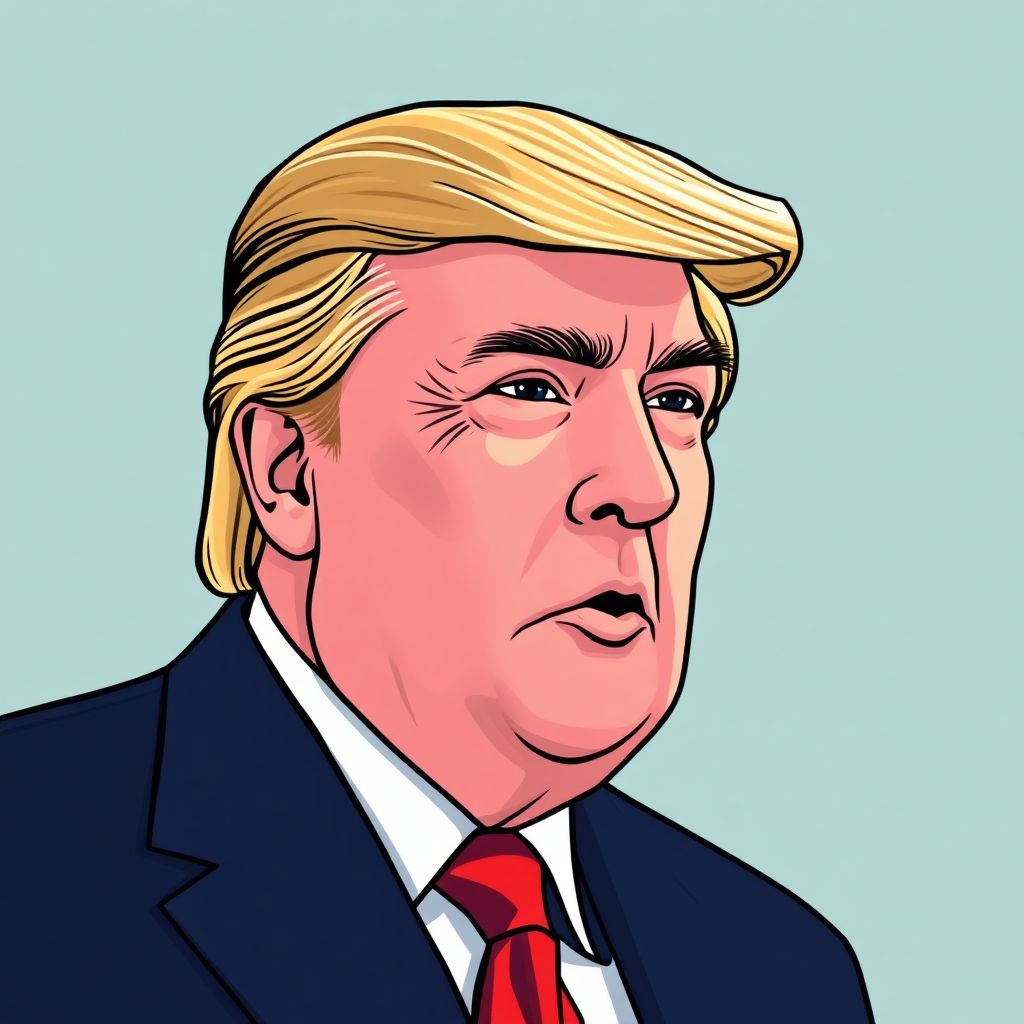The past week marked a significant shift in the cryptocurrency landscape, with major developments on both the regulatory and corporate fronts. From the Trump family’s staggering crypto profits to OpenSea’s long-awaited token announcement, the digital asset world continues to evolve at a rapid pace.
The Trump family’s involvement in the crypto market has proven exceptionally lucrative, with total profits now exceeding $1 billion. These gains stem from a combination of direct investments, strategic partnerships, and monetization of digital collectibles such as NFTs. The family’s growing influence in the crypto space highlights a broader trend of political figures leveraging blockchain technologies for financial and branding purposes.
Meanwhile, the UK is ramping up its regulatory oversight. Her Majesty’s Revenue and Customs (HMRC) reached out to over 65,000 individuals suspected of holding undeclared crypto assets. This aggressive enforcement action signals the country’s intent to tighten tax compliance among digital asset investors. The move reflects a growing global sentiment that crypto cannot remain a regulatory gray zone indefinitely.
In a major industry milestone, OpenSea has confirmed plans to launch its native token in the first quarter of 2026. As the largest NFT marketplace, OpenSea’s decision to introduce a token could redefine platform governance and user engagement. Although details about the tokenomics remain under wraps, expectations are high that it will provide staking rewards, governance rights, or fee-reduction incentives to holders.
Elsewhere in the industry, content creator MrBeast has filed a trademark application related to cryptocurrency services. The move suggests a potential foray into blockchain-based fan engagement or tokenized digital experiences. Given MrBeast’s massive online following, this development could bring crypto further into the mainstream.
Switzerland’s financial regulators have launched an investigation into FIFA’s use of blockchain solutions, probing potential financial misconduct or transparency issues within the organization’s digital initiatives. The inquiry underscores the growing scrutiny surrounding blockchain applications in large institutions and sports organizations.
In Asia, South Korean authorities have approved Binance’s acquisition of local exchange GOPAX, marking a major step for the global exchange’s expansion in the region. This approval not only restores GOPAX’s operational capacity but also strengthens Binance’s presence in a tightly regulated market.
Ripple continues its strategic expansion through the acquisition of a treasury management firm, signaling a push into institutional finance. This move aligns with Ripple’s broader objective to provide end-to-end financial infrastructure powered by blockchain.
Chainlink also made headlines by deploying a real-time oracle solution on MegaETH, enhancing data reliability and reducing latency for decentralized applications. As real-world data becomes increasingly essential in DeFi, Chainlink’s innovation could significantly boost smart contract capabilities.
Kraken, another major player in the crypto space, has acquired a U.S.-based derivatives trading platform, further expanding its product offerings to include futures and options. The acquisition is expected to attract more institutional investors seeking diversified crypto exposure.
Australia is contemplating new restrictions on crypto ATMs in response to rising concerns over money laundering and fraud. The proposed measures could include transaction limits, mandatory identity verification, and tighter oversight on ATM operators.
Stablecoin issuer Paxos resolved a significant minting error that temporarily caused confusion in the market. The company assured users that funds remained secure and that the issue stemmed from a technical misconfiguration, not a security breach.
Japan is finalizing new rules targeting insider trading in the crypto market. These regulations aim to curb price manipulation and increase market integrity, particularly among crypto exchanges and token issuers.
New York State has announced the creation of a dedicated digital assets office within its financial regulatory body. The new division will focus on crafting comprehensive guidelines for crypto businesses, investor protection, and licensing standards.
Tether, the issuer of the world’s largest stablecoin, has reached a settlement related to the Celsius Network bankruptcy case. The agreement involves resolving claims tied to frozen assets and unpaid obligations, bringing some closure to one of the biggest collapses in the crypto lending sector.
Monad, a blockchain infrastructure company, has introduced a token allocation checker tool. This feature allows users to verify their eligibility and allotments for upcoming airdrops or token launches, streamlining participation in decentralized ecosystems.
On the investment strategy front, institutional and retail investors continue to accumulate Bitcoin, undeterred by recent market volatility. Analysts interpret this trend as a sign of long-term confidence in the asset, particularly as macroeconomic uncertainties persist.
Expanding on these developments, the broader market shows signs of both maturation and consolidation. While regulatory frameworks tighten across major economies, innovation within the crypto sector continues unabated. The convergence of traditional finance and blockchain technology is accelerating, evidenced by acquisitions, token launches, and new compliance structures.
The role of celebrities and influencers, such as MrBeast and the Trump family, is also evolving. Their entry into crypto not only drives adoption but also raises questions about regulatory oversight, financial literacy among followers, and the potential for speculative bubbles.
Moreover, the upcoming OpenSea token could serve as a benchmark for how NFT marketplaces evolve. If successful, it might inspire similar platforms to launch their own governance tokens, potentially reshaping the NFT economy with more decentralized decision-making mechanisms.
Regulatory clarity remains one of the most critical issues facing the industry. With countries like Japan and the UK taking decisive steps, other jurisdictions are likely to follow suit. For investors and developers, adapting to these new legal environments will be essential for long-term sustainability.
As for stablecoins, the Paxos incident serves as a reminder of the importance of robust infrastructure and transparency. Despite the rapid growth of the sector, technical errors—even non-malicious ones—can have wide-reaching effects on market sentiment.
Looking ahead, the intersection of politics, regulation, and technology will continue to shape the future of crypto. Whether through high-profile endorsements, state-level policy changes, or technological breakthroughs, the digital asset space is on the cusp of a new phase—more mature, more scrutinized, but also more integrated into the global financial system.
